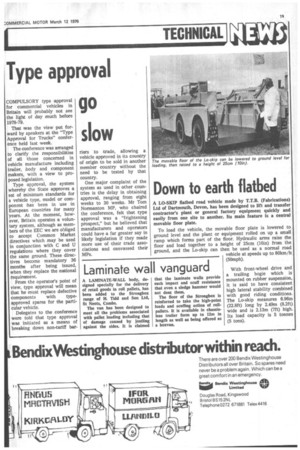Type approval go slow
Page 21

If you've noticed an error in this article please click here to report it so we can fix it.
COMPULSORY type approval for commercial vehicles in Britain will probably not see the light of day much before 1978-79.
That was the view put forward by speakers at the "Type Approval for Trucks" conference held last week.
The conference was arranged to clarify the responsibilities of all those concerned in vehicle manufacture including trailer, body and component makers, with a view to proposed legislation.
Type approval, the system whereby the State approves a set of minimum standards for a vehicle type, model or component has been in use in European countries for many 'years. At the moment, however, Britain operates a voluntary system, although as members of the EEC we are obliged to accept Common Market directives which may be used in conjunction with C and U regulations where they cover the same ground. These directives become mandatory 36 months after being issued, when they replace the national requirement.
From the operator's point of view, type approval will mean that he must replace defective components with typeapproved spares for the particular vehicle.
Delegates to the conference were told that type approval was initiated as a means of breaking down non-tariff bar riers to trade, allowing a vehicle approved in its country of origin to be sold in another member country without the need to be tested by that country.
One major complaint of the system as used in other countries is the delay in obtaining approval, ranging from eight weeks to 30 weeks. Mr Tom Nonmanton MP, who chaired the conference, felt that type approval was a "frightening prospect," but he believed that manufacturers and operators could have a far greater say in likely legislation if they made more use of their trade associations and canvassed their MPs.
















































































































